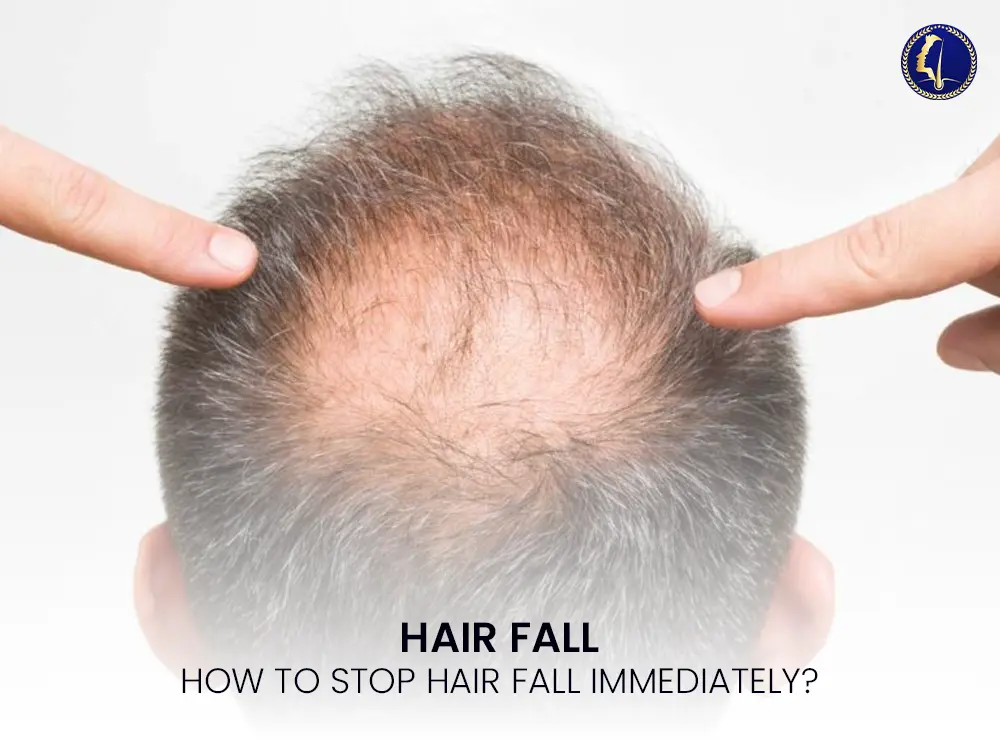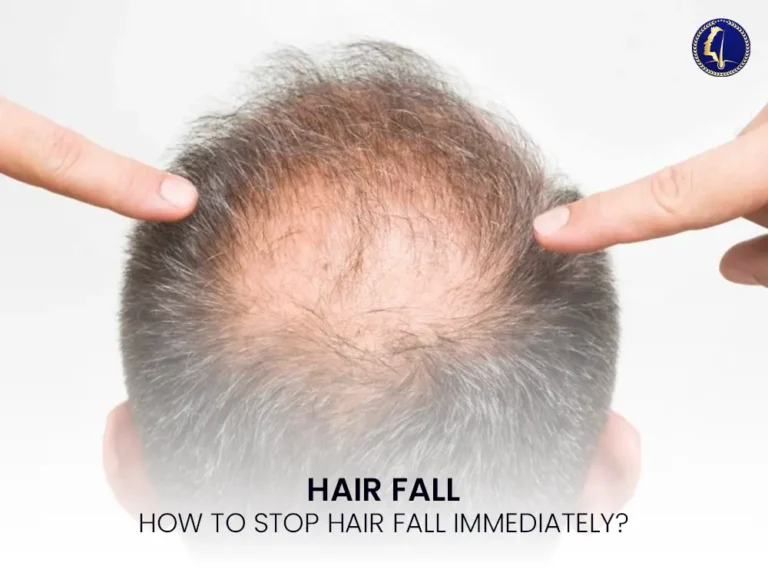Hair fall is a common concern for millions of people worldwide. Whether caused by stress, genetics, poor nutrition, or health conditions, hair fall can be distressing and lead to a loss of self-confidence. While it’s natural to lose 50–100 strands per day, anything beyond that warrants attention.
What Causes Hair Fall?

Before jumping into solutions, it’s essential to understand the root causes:
Genetics (Androgenetic Alopecia) – Inherited pattern baldness.
Hormonal Imbalance – Pregnancy, menopause, thyroid issues.
Nutritional Deficiencies – Lack of iron, protein, vitamin D, and B vitamins.
Stress – Physical or emotional stress can trigger telogen effluvium.
Poor Hair Care Practices – Excessive styling, heat, and chemical treatments.
Medical Conditions – PCOS, autoimmune diseases, scalp infections.
How to Stop Hair Fall Immediately (Quick Fixes)
1. Scalp Massage with Essential Oils
Massaging your scalp improves blood circulation. Use oils like coconut, rosemary, or castor oil. Warm it slightly and massage for 5–10 minutes.
2. Apply Onion Juice
Onion juice is rich in sulfur, which boosts collagen production and hair strength. Apply it on the scalp, leave it for 15–30 minutes, then rinse with a mild shampoo.
3. Use Aloe Vera
Aloe vera soothes the scalp and reduces dandruff. Apply fresh aloe gel directly to the scalp and let it sit for 30 minutes.
4. Cold Water Rinse
Rinsing hair with cold water seals the hair cuticle and prevents excessive hair loss.
5. Avoid Heat and Chemicals
Stop using straighteners, curling irons, and harsh dyes immediately. Let your hair rest.
Long-Term Solutions to Stop Hair Fall Permanently
1. Healthy Diet
Consume foods rich in iron, protein, zinc, biotin, and vitamins A, C, D, and E. Include leafy greens, eggs, berries, nuts, and fish in your meals.
2. Stay Hydrated
Water plays a vital role in hair cell health. Drink at least 8 glasses of water a day.
3. Regular Exercise
Physical activity helps manage stress and improves overall circulation, including to the scalp.
4. Hair Supplements
Biotin, collagen, iron, and multivitamins (with medical guidance) can help if your diet is lacking.
5. Reduce Stress
Practice meditation, yoga, deep breathing, or mindfulness to lower cortisol levels.
6. Medical Treatments
Minoxidil (Rogaine): FDA-approved topical treatment for hair regrowth.
Finasteride (for men): Oral medication that blocks DHT, a hormone linked to hair loss.
PRP Therapy: Platelet-Rich Plasma injections to stimulate hair growth.
Hair Transplant: A surgical option for permanent results.
Best Hair Care Routine to Prevent Hair Fall
Use a sulfate-free, mild shampoo and conditioner
Avoid brushing wet hair
Trim regularly to prevent split ends
Use a wide-tooth comb
Avoid tight hairstyles
Sleep on a silk pillowcase
5 Frequently Asked Questions (FAQs)
1. Can hair fall be reversed completely? Yes, depending on the cause. Nutritional and lifestyle-related hair fall is reversible. Genetic hair loss is harder to reverse but manageable with treatment.
2. How long does it take to see results? It usually takes 3–6 months of consistent care and treatment to see visible results.
3. Is daily hair washing harmful? Washing daily with a mild shampoo is okay for oily scalps. For dry scalps, 2–3 times a week is better.
4. Does cutting hair stop hair fall? Cutting doesn’t stop hair fall from the root cause but helps manage breakage and split ends.
5. What is the best shampoo to stop hair fall? Look for shampoos with ingredients like biotin, keratin, caffeine, and natural oils. Avoid sulfates and parabens.
By understanding the causes and applying a combination of immediate and long-term solutions, you can take control of your hair fall problem. The key is consistency, patience, and the right approach tailored to your needs. If hair fall persists, consult a dermatologist or trichologist for professional guidance.
GLOJAS Specialist Clinic offers expert hair loss treatment through personalized, evidence-based plans developed by board-certified specialists. Using FDA- and CE-approved technologies like PRP therapy and precision hair restoration, we ensure safe, effective results. Comprehensive aftercare and follow-up support reinforce patient trust, making GLOJAS a reliable authority in hair restoration solutions.
Read More : Hair Transplant Malaysia
